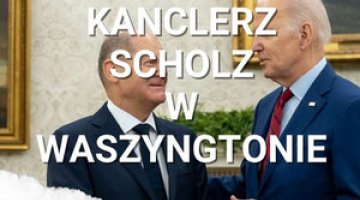Germany: the SPD has a stronger influence on foreign policy
On 27 January, deputy chancellor Sigmar Gabriel, who had up till then served as the minister for the economy, was nominated minister of foreign affairs. He succeeds Frank-Walter Steinmeier (SPD) in the role, as Steinmeier will be elected president of the Federal Republic of Germany by the Federal Assembly on 12 February. Brigitte Zypries (SPD), who has the reputation of being a respected expert and has served as a secretary of state at the ministry for the economy, will be the new head of the ministry. Gabriel went on his first visit to Paris, where he emphasised the need of close German-French co-operation in the EU. He is planning to go on further visits to Brussels and the Baltic states. He also wants to arrange talks with representatives of the new US administration as soon as possible.
Commentary
- Gabriel has been weakened politically after he relinquished leadership of the SPD to Martin Schulz and withdrew from running for the office of chancellor in the election to the Bundestag scheduled for autumn 2017. However, he can be receive backing in pushing through the Social Democratic vision of foreign policy, especially in opposition to the Christian Democrats, by both the new president and the new leader of the Social Democrats. Steinmeier intends to actively perform the new function, and foreign policy could be an optimal field of operation to him. In turn, Schulz, who does not have any function in the cabinet, will feel free both when criticising Chancellor Angela Merkel and when proposing an alternative view of Germany’s foreign policy.
- Gabriel, already as the minister for the economy, emphasised that he had a different stance on some aspects of foreign policy than Chancellor Merkel. This concerned, for example, his clear support for the construction of the Nord Stream 2 gas pipeline or Brexit which, in his opinion, offers more opportunities than threats to Germany and the EU. At present, the Social Democrats may attempt to push through their vision of the development of the European Union with even stronger determination, even though in fact the Chancellor’s Office and the Ministry of Finance (both controlled by the Christian Democrats) are in charge of Germany’s European policy. The key politicians in the SPD support the ‘reinforcement of the EU core’ and want to enhance European integration, seeing this as the only chance for resisting the protectionist foreign and economic policy of the US government. Merkel, though, wants the unity of all member states to be maintained. She has also taken a much more dogmatic stance on the budget discipline and austerity policy of the eurozone member states than, for example, Martin Schulz.
- The new minister of foreign affairs will still insist on EU sanctions on Russia being eased. The German-Russian platform of entrepreneurs was established under the auspices of the economy ministries of the two countries when Gabriel was in charge of the ministry (the first meeting took place on 22 October 2015 in Moscow). When compared to Schulz and Steinmeier, his views are the most pro-Russian, and he frequently presents these views as a pragmatic approach to developing an extensive as possible economic co-operation with Russia.




